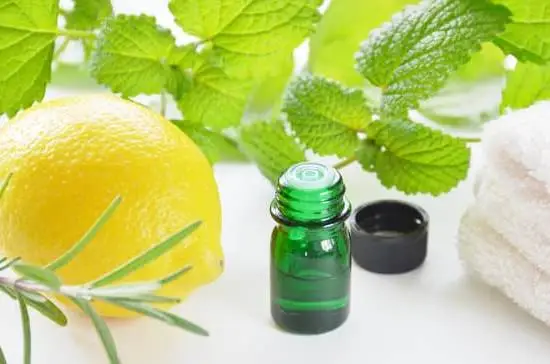Aromatherapy for labor and birth has become increasingly popular as more expecting mothers seek natural and holistic approaches to childbirth. This article will explore the concept of aromatherapy, its use during labor and birth, and the benefits it offers during the birthing process. Aromatherapy involves the use of essential oils to promote physical and emotional well-being, making it a valuable tool for managing pain, promoting relaxation, and supporting postpartum recovery.
During labor and birth, aromatherapy can be used in various ways to enhance the birthing experience. Whether it’s through diffusing essential oils, applying them topically, or inhaling their aromatic scents, aromatherapy can provide comfort and relief to women in labor. The calming effects of certain essential oils can help reduce stress and anxiety while promoting relaxation, making it a valuable addition to any birth plan.
Research has shown that aromatherapy has a positive impact on labor and birth outcomes. Not only does it offer natural pain relief through the use of specific essential oils, but it also contributes to creating a soothing atmosphere for both the birthing mother and her support team.
In the following sections, we will delve deeper into the best essential oils for labor and birth, how to use aromatherapy during childbirth, techniques for pain management, promoting relaxation, postpartum recovery with aromatherapy, safety precautions during labor and birth, as well as DIY aromatherapy recipes for childbirth.
Best Essential Oils for Labor and Birth
Aromatherapy is a holistic treatment that uses natural plant extracts to promote health and well-being. When it comes to labor and birth, aromatherapy can be a valuable tool for managing pain, promoting relaxation, and supporting the overall birthing experience. The use of essential oils during childbirth has been increasing in popularity as more women seek natural and alternative methods for pain relief and stress reduction.
Using the best essential oils for labor and birth can have a significant impact on the birthing experience. Certain essential oils are known for their analgesic properties, making them effective for pain management during labor. Additionally, different scents can evoke specific emotional responses, which can influence the atmosphere in the delivery room. Some of the most recommended essential oils for labor and birth include:
- Lavender: Known for its relaxing and calming effects, lavender oil can help reduce anxiety and promote relaxation during childbirth.
- Peppermint: This invigorating scent has pain-relieving properties and can help alleviate nausea and fatigue during labor.
- Frankincense: With its grounding and uplifting fragrance, frankincense oil can support mental clarity and reduce stress during childbirth.
Safe and recommended essential oils for labor and birth are those that are free from synthetic additives or impurities. It’s important to choose high-quality, pure essential oils to ensure their effectiveness and safety during childbirth. Pregnant women should always consult with their healthcare provider before using essential oils to ensure they are suitable for their individual circumstances.
Incorporating these best essential oils into a holistic approach to childbirth can offer women non-pharmacological pain relief options while creating a soothing environment that promotes relaxation. By understanding the benefits of each essential oil, expectant mothers can make informed choices about how they would like to incorporate aromatherapy into their birthing plan. The use of aromatherapy for labor and birth continues to grow as more women recognize its valuable contribution to their childbirth experience.
How to Use Aromatherapy During Labor and Birth
Aromatherapy for labor and birth is a natural and holistic approach that can be used to create a calming and soothing atmosphere during childbirth. There are several ways to incorporate essential oils into the labor and birthing experience, and doing so can provide numerous benefits for both the mother and the baby. Here are some methods for using aromatherapy during labor:
- Diffusion: One of the most common methods for using essential oils during labor is through diffusion. This involves dispersing the scent of the essential oil into the air using a diffuser. When inhaled, the aroma of certain essential oils can promote relaxation and reduce anxiety, helping to create a peaceful environment for labor and birth.
- Topical Application: Another way to use aromatherapy during labor is through topical application of diluted essential oils on specific acupressure points, such as the wrists or neck. This method allows for direct absorption of the oil into the bloodstream, providing pain relief and promoting relaxation.
- Aromatic Bath: A relaxing bath infused with essential oils can help relieve tension, reduce stress, and soothe discomfort during early labor. Adding a few drops of lavender or chamomile essential oil to warm bathwater can create a serene environment for the mother, helping her to relax and prepare for childbirth.
Creating a calming and soothing atmosphere using aromatherapy during labor involves careful planning and consideration. It’s important to select scents that are known for their relaxing properties, such as lavender, chamomile, or ylang-ylang. Additionally, ensuring proper ventilation in the birthing room will allow for optimal diffusion of essential oils without overwhelming those present. Always consult with a healthcare provider before using aromatherapy during labor to ensure it is safe for you and your baby.
As you prepare for this special time in your life, consider incorporating aromatherapy into your birth plan to help promote relaxation and reduce stress during childbirth. With proper precautions and guidelines in place, utilizing aromatherapy techniques can enhance your overall birthing experience while providing natural pain management relief in a safe manner.
Aromatherapy Techniques for Pain Management in Labor
Aromatherapy has been known to provide relief and comfort during labor and birth. When it comes to managing pain during childbirth, essential oils can play a crucial role in alleviating discomfort and promoting relaxation. The use of aromatherapy for pain management in labor involves the strategic application of specific scents to help ease the birthing process.
Many women have found success in using essential oils such as lavender, peppermint, and clary sage to reduce labor pains. These oils are known for their analgesic and soothing properties, which can help alleviate the intensity of contractions and create a more calming environment for the mother-to-be. Additionally, the act of inhaling these fragrances can trigger the release of endorphins, which are natural pain relievers produced by the body.
One technique for using aromatherapy for pain management during labor is through diffusion. By diffusing essential oils in the birthing room, mothers can benefit from the therapeutic effects of these scents while they go through labor.
Another method is topical application, where diluted essential oils are massaged onto specific areas of the body or used in compresses to target areas experiencing discomfort. Overall, incorporating aromatherapy techniques for pain management in labor can be a valuable addition to a woman’s birthing experience.
| Aromatherapy Oils | Pain Management Benefits |
|---|---|
| Lavender | Analgesic and calming properties |
| Peppermint | Cooling sensation and muscle tension relief |
| Clary Sage | Hormone regulation and pain reduction |
Aromatherapy for Relaxation and Stress Relief During Labor
Aromatherapy has long been known for its relaxing and stress-relieving effects, making it a popular choice for women during labor. The use of essential oils can help create a calming atmosphere, reduce anxiety, and promote relaxation during the intense process of childbirth. By utilizing specific scents and techniques, aromatherapy can play a significant role in helping women manage stress and find comfort during labor.
The olfactory system, or sense of smell, is closely linked to the brain’s limbic system, which processes emotions and memories. This connection means that inhaling certain essential oils can have a direct impact on mood and emotional state.
For women in labor, this presents an opportunity to use aromatherapy to alleviate stress and promote feelings of calmness. Scents like lavender, chamomile, and ylang-ylang are popular choices for their soothing properties, helping to create a more relaxed environment for both the mother and her birth partners.
One method of using aromatherapy for relaxation during labor is through diffusion. Diffusers can be used to fill the room with aromatic mist, allowing the scent molecules to be inhaled by the laboring woman. Additionally, applying diluted essential oils to pulse points or using them in massage oils can provide targeted relief during contractions. This approach allows for a personalized experience tailored to the individual’s preferences and needs.
According to a study published in the Journal of Alternative and Complementary Medicine, women who received aromatherapy massage during labor reported lower levels of anxiety compared to those who did not receive this treatment. This highlights the potential benefits of incorporating aromatherapy for relaxation and stress relief during childbirth.
| Aromatherapy Oils | Effect |
|---|---|
| Lavender | Calming and soothing |
| Chamomile | Relaxing and stress-reducing |
| Ylang-Ylang | Promotes feelings of tranquility |
Aromatherapy for Postpartum Recovery
After the intense and transformative experience of childbirth, many women turn to aromatherapy as a natural way to support their physical and emotional recovery in the postpartum period. Aromatherapy involves using essential oils extracted from plants to promote healing, relaxation, and overall well-being. When used responsibly, aromatherapy can be a valuable tool for postpartum recovery.
Benefits of Aromatherapy for Postpartum Healing
Physical Healing
Essential oils such as lavender, frankincense, and chamomile are known for their anti-inflammatory and pain-relieving properties, making them beneficial for aiding in physical recovery after childbirth. These oils can help reduce swelling, relieve soreness, and promote tissue repair.
Emotional Support
The postpartum period can bring about a range of emotions, from joy and fulfillment to feelings of overwhelm and anxiety. Aromatherapy can play a role in providing emotional support during this time. Essential oils like bergamot, ylang-ylang, and rose oil are often used to uplift the mood, reduce stress, and promote relaxation.
Using Aromatherapy for Postpartum Mental Health
In addition to its physical healing benefits, aromatherapy can also support postpartum mental health. Essential oils like clary sage and geranium have been traditionally used to balance hormones and ease feelings of depression or anxiety that may arise during the postpartum period. A soothing blend of these oils can also be helpful in creating a calm environment conducive to bonding with the new baby.
As with any use of essential oils during pregnancy or postpartum, it’s important to consult with a healthcare provider before using aromatherapy. Additionally, proper dilution methods should be followed when using essential oils on the skin or through inhalation. With the right guidance and precautions in place, aromatherapy can be an effective and safe method for supporting postpartum recovery.
Safety and Precautions of Aromatherapy During Labor and Birth
Aromatherapy is a practice that involves using essential oils and other aromatic compounds for their therapeutic benefits. When it comes to labor and birth, aromatherapy can be a helpful and natural way to manage pain, promote relaxation, and support postpartum recovery. However, it is important to consider safety and precautions when using essential oils during childbirth to ensure the well-being of both the mother and the baby.
Important Considerations for Using Essential Oils During Childbirth
Pregnant women should exercise caution when using essential oils during labor and birth. It is crucial to consult with a healthcare provider or a certified aromatherapist before incorporating aromatherapy into the birthing process. Some essential oils may have contraindications for use during pregnancy, so it’s important to be aware of any potential risks.
Potential Risks and Precautions for Pregnant Women
Certain essential oils have been associated with potential risks for pregnant women, such as triggering contractions or causing allergic reactions. For instance, oils like clary sage and jasmine are known to have oxytocic properties that could potentially stimulate uterine contractions. It is important to avoid these types of oils until after labor unless under the guidance of a qualified professional.
Guidelines for Using Aromatherapy Safely in a Medical Setting
In a medical setting such as a hospital or birthing center, it is important to follow specific guidelines when using aromatherapy during labor and birth. Some facilities may have restrictions on the use of essential oils due to allergies or sensitivities among staff or other patients. Before bringing any essential oils into a medical environment, it’s necessary to check with healthcare providers or facility staff regarding their policies on aromatherapy.
By being mindful of these safety considerations and taking proper precautions, expectant mothers can safely enjoy the benefits of aromatherapy for labor and birth while minimizing potential risks. Consulting with professionals and following guidelines will help ensure a positive experience with aromatherapy during this special time.
DIY Aromatherapy Recipes for Labor and Birth
In conclusion, aromatherapy for labor and birth is a natural and effective way to support women during the childbirth process. The use of essential oils can help create a soothing and calming atmosphere, alleviate pain, reduce stress and anxiety, and promote postpartum healing. By harnessing the power of scents, expectant mothers can enhance their birthing experience and improve their overall well-being before, during, and after labor.
When it comes to choosing the best essential oils for labor and birth, it is important to select safe and recommended options that are known for their pain-relieving properties and calming effects. Different scents can have varying impacts on the birthing experience, so finding the right combination of essential oils is crucial in creating a positive environment. Additionally, understanding how to use aromatherapy during labor – whether through diffusers, massage oils, or inhalation techniques – can further maximize its benefits.
As with any natural remedy, safety precautions should be taken into consideration when using aromatherapy during childbirth. Pregnant women should consult with their healthcare provider before incorporating essential oils into their birthing plan to ensure they are using them safely.
By following guidelines for using aromatherapy in a medical setting and being aware of potential risks associated with certain essential oils, women can confidently integrate this holistic approach into their childbirth journey. Aromatherapy for labor and birth is a valuable tool that empowers women to take an active role in promoting their own comfort and well-being during one of life’s most significant events.
Frequently Asked Questions
What Aromatherapy Is Good for Labour?
Aromatherapy is good for labor because it can help to reduce stress and anxiety, promote relaxation, and provide pain relief. Essential oils such as lavender, chamomile, and clary sage are commonly used during labor for their calming and pain-relieving properties.
What Essential Oils Are Good for Inducing Labor?
Some essential oils are believed to help induce labor naturally, such as clary sage, jasmine, and rose otto. These oils are thought to have uterine-stimulating effects that may help encourage contractions. However, it’s important to use these oils with caution and under the guidance of a qualified aromatherapist or healthcare provider.
What Is Aromatherapy During Labor?
Aromatherapy during labor involves using essential oils and aromatic compounds to support women during childbirth. This can include diffusing essential oils in the birthing room, using aromatherapy massage techniques, or inhaling essential oil blends to help manage labor pains and promote relaxation. Aromatherapy during labor is often used as a complementary therapy alongside traditional medical interventions for childbirth.

Are you looking for a natural way to improve your health and wellbeing?
If so, aromatherapy may be the answer for you.





